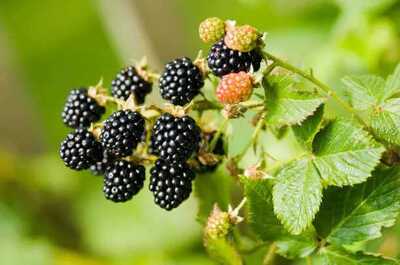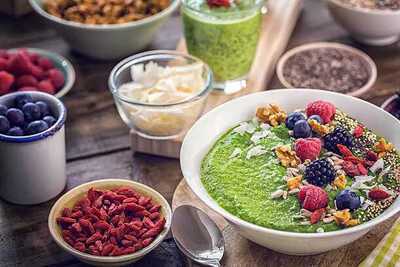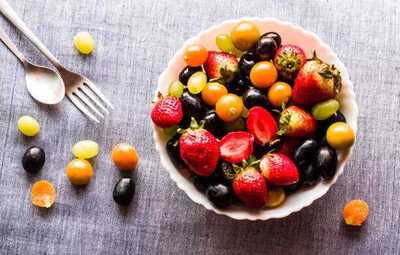Pick up a bowl of fruit, and chances are you’ll find yourself reaching for either blueberries or black grapes. They both look great, taste sweet, and feel like the kind of thing a nutritionist would approve of. But if you’ve ever wondered which one is actually better for you, it’s not just about colour or convenience — there’s real value in what each brings to your plate. And surprisingly, they’re quite different when you look a little closer. Let’s break it down in a way that actually makes sense for everyday choices.
What makes blueberries special
Blueberries are small, but don’t let that fool you — they’re full of good stuff. They’re low in calories, high in fibre, and packed with antioxidants. One group in particular, called anthocyanins, gives them that deep blue colour. These are also the reason blueberries get called a “superfood.” Basically, they’re tiny fruits that do a lot more than just taste nice.

A study in the National Library of Medicine found that anthocyanins — the compounds that give blueberries their deep blue colour — actually do quite a bit behind the scenes. They help your heart, keep blood sugar in check, reduce inflammation, and may even protect your brain as you get older. People who eat blueberries regularly are less likely to develop heart disease, type 2 diabetes, or age-related memory issues. Even eating a small handful a day can make a difference to your blood pressure and cholesterol. So yes, these tiny berries pull their weight.
On the nutrition chart, 100 grams of blueberries give you about 57 calories, with roughly 14 grams of carbs and 2.4 grams of dietary fibre. They’re a great source of vitamin C, offering around 9.7 mg (about 16% of your daily needs), and provide about 19.3 mcg of vitamin K (nearly 24% of the daily value). You’ll also get 0.3 mg of manganese (about 17% DV), along with small amounts of vitamin E, B6, and folate. Thanks to their fibre content, they help keep digestion smooth and you feeling full longer — which makes them a smart pick if you’re trying to eat clean without constantly feeling hungry.
What black grapes bring to the table
Black grapes are sweet, juicy, and easy to love — but they’re not just about taste. Their dark skin is rich in resveratrol, a powerful antioxidant also found in red wine. It’s been linked to better heart health, improved blood flow, and even some protection for your brain as you age. So while they make an easy snack, they’re also quietly doing their bit to support your body, minus the alcohol or effort.

According to WebMD, black grapes are high in antioxidants, water content, and essential vitamins like vitamin C and vitamin K. They also contain potassium, manganese, and copper — all important for everything from muscle function to bone strength.
Grapes are naturally low in fat and provide about 70 calories per 100 grams. They contain around 16 grams of natural sugars and about 0.9 grams of fibre, which gives them that sweet taste and juicy texture. They’re made up of nearly 80 percent water, which makes them super hydrating. You’ll also get small amounts of vitamin C, vitamin K, and potassium — all useful for immunity, bone health, and maintaining blood pressure. But because of their higher natural sugar content and glycaemic index, they can raise blood sugar more quickly than fruits like blueberries.
How to eat them right

If you’re adding these to your breakfast or snack, here’s what helps. Blueberries are easy to work with — eat them raw, toss them into a smoothie, stir them into porridge, or even throw them on a salad. They freeze well too, so you can stock up when they’re cheap and use them whenever.

Black grapes are best eaten fresh, especially when they’re cold and crisp — that’s when they taste their best. To keep the sugar from hitting too fast, pair them with some protein or fat like nuts, yoghurt, or a bit of cheese. And make sure to eat them with the skin on — that’s where the good stuff like resveratrol is.
Which one should you eat?
Honestly? Go for both. If you’re choosing based on what your body needs, blueberries are better for blood sugar, brain health, and keeping inflammation low. Black grapes are great if you’re looking for hydration, antioxidants, and heart support. Simple as that — different strengths, both worth eating.
But it’s not a competition. These fruits bring different strengths to the table, and your body benefits most when you mix things up — not when you stick to just one “superfood.” The key is to eat them whole, fresh, and not buried in added sugar or processed junk.
So next time you’re at the fridge or a fruit cart, don’t overthink it. Choose what you’re craving. Either way, you’re doing your body a favour — and enjoying something that tastes good too.
What makes blueberries special
Blueberries are small, but don’t let that fool you — they’re full of good stuff. They’re low in calories, high in fibre, and packed with antioxidants. One group in particular, called anthocyanins, gives them that deep blue colour. These are also the reason blueberries get called a “superfood.” Basically, they’re tiny fruits that do a lot more than just taste nice.
A study in the National Library of Medicine found that anthocyanins — the compounds that give blueberries their deep blue colour — actually do quite a bit behind the scenes. They help your heart, keep blood sugar in check, reduce inflammation, and may even protect your brain as you get older. People who eat blueberries regularly are less likely to develop heart disease, type 2 diabetes, or age-related memory issues. Even eating a small handful a day can make a difference to your blood pressure and cholesterol. So yes, these tiny berries pull their weight.
On the nutrition chart, 100 grams of blueberries give you about 57 calories, with roughly 14 grams of carbs and 2.4 grams of dietary fibre. They’re a great source of vitamin C, offering around 9.7 mg (about 16% of your daily needs), and provide about 19.3 mcg of vitamin K (nearly 24% of the daily value). You’ll also get 0.3 mg of manganese (about 17% DV), along with small amounts of vitamin E, B6, and folate. Thanks to their fibre content, they help keep digestion smooth and you feeling full longer — which makes them a smart pick if you’re trying to eat clean without constantly feeling hungry.
What black grapes bring to the table
Black grapes are sweet, juicy, and easy to love — but they’re not just about taste. Their dark skin is rich in resveratrol, a powerful antioxidant also found in red wine. It’s been linked to better heart health, improved blood flow, and even some protection for your brain as you age. So while they make an easy snack, they’re also quietly doing their bit to support your body, minus the alcohol or effort.

According to WebMD, black grapes are high in antioxidants, water content, and essential vitamins like vitamin C and vitamin K. They also contain potassium, manganese, and copper — all important for everything from muscle function to bone strength.
Grapes are naturally low in fat and provide about 70 calories per 100 grams. They contain around 16 grams of natural sugars and about 0.9 grams of fibre, which gives them that sweet taste and juicy texture. They’re made up of nearly 80 percent water, which makes them super hydrating. You’ll also get small amounts of vitamin C, vitamin K, and potassium — all useful for immunity, bone health, and maintaining blood pressure. But because of their higher natural sugar content and glycaemic index, they can raise blood sugar more quickly than fruits like blueberries.
How to eat them right
If you’re adding these to your breakfast or snack, here’s what helps. Blueberries are easy to work with — eat them raw, toss them into a smoothie, stir them into porridge, or even throw them on a salad. They freeze well too, so you can stock up when they’re cheap and use them whenever.
Black grapes are best eaten fresh, especially when they’re cold and crisp — that’s when they taste their best. To keep the sugar from hitting too fast, pair them with some protein or fat like nuts, yoghurt, or a bit of cheese. And make sure to eat them with the skin on — that’s where the good stuff like resveratrol is.
Which one should you eat?
Honestly? Go for both. If you’re choosing based on what your body needs, blueberries are better for blood sugar, brain health, and keeping inflammation low. Black grapes are great if you’re looking for hydration, antioxidants, and heart support. Simple as that — different strengths, both worth eating.
But it’s not a competition. These fruits bring different strengths to the table, and your body benefits most when you mix things up — not when you stick to just one “superfood.” The key is to eat them whole, fresh, and not buried in added sugar or processed junk.
So next time you’re at the fridge or a fruit cart, don’t overthink it. Choose what you’re craving. Either way, you’re doing your body a favour — and enjoying something that tastes good too.
You may also like

Sidharth Malhotra seeks blessings at Siddhivinayak Temple after welcoming daughter

Princess Charlotte 'has no poker face' after major moment in Euros final

Lewis Hamilton shows true colours as approach to struggling F1 rival spotted on live TV

Dy CM To Influencers: Showcase Vindhya In Content; Regional Tourism Conclave Concludes In Rewa

Kerala prison officer suspended over remarks on notorious convict





